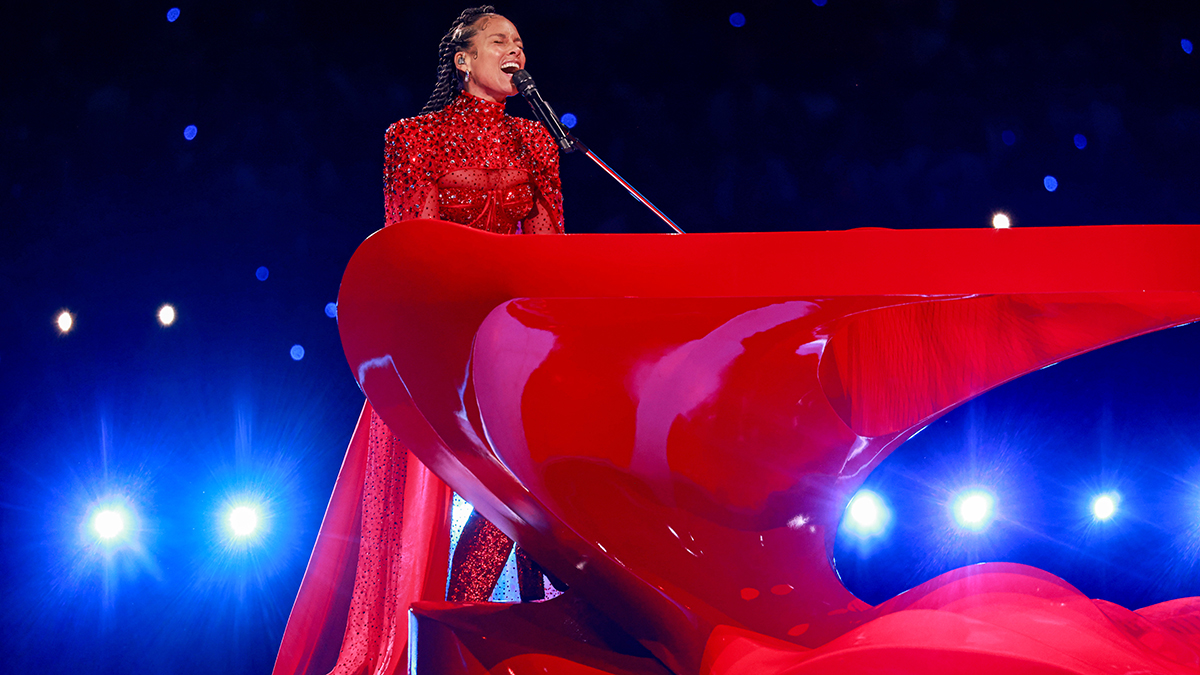Does it matter if Alicia Keys’ ‘voice crack’ was pitch-corrected out of her Super Bowl performance when it was uploaded to YouTube? Not really
That said, removing the slip-up has only served to draw more attention to it

Want all the hottest music and gear news, reviews, deals, features and more, direct to your inbox? Sign up here.
You are now subscribed
Your newsletter sign-up was successful
If you’re singing live, the odd vocal wobble is pretty much inevitable, particularly when you’re dealing with the pressure of having to perform in front of a huge global TV audience.
And so it proved with Alicia Keys during her guest spot in Usher’s Super Bowl Halftime Show. As she sang the first line of the chorus in her 2003 hit If I Ain’t Got You (“Some people want it all”) her voice momentarily cracked.
All perfectly understandable, and certainly not something that Keys should be criticised for. She’s performed the song flawlessly thousands of times before, and no-one’s going to question her vocal chops on the basis of one tiny slip-up.
In fact, the wobbly moment would almost certainly have been forgotten by now had it not been for the fact that, when the official video of the Halftime Show was uploaded to YouTube, it has been fixed, presumably with a pitch correction plugin.
This was quickly spotted by many social media users, some of whom are either annoyed that what they’re hearing is no longer ‘as performed’, or think that it’s some kind of ‘gotcha’ moment.
Last night Alicia Keys’s voice cracked (first video), and fascinatingly, the official NFL YouTube channel appears to be attempting to erase that little moment, having edited it out in their upload (second video). pic.twitter.com/EM4k8rWT8cFebruary 12, 2024
In truth, though, it matters very little. Keys has nothing to prove in terms of her ability to sing live and, if anything, the original blip provides firm evidence that she was doing it for real on the night.
What’s more, we suspect that it’s not uncommon for ‘live’ vocals to be fixed up after the event before performance videos are uploaded, just as they are when artists record in the studio.
Want all the hottest music and gear news, reviews, deals, features and more, direct to your inbox? Sign up here.
That said, given that this was such a widely viewed performance, any edits to it after the fact were almost bound to be spotted, drawing more attention to mistakes than would otherwise have been the case. As such, on this occasion, it might have been better to just leave things as they were.



I’m the Deputy Editor of MusicRadar, having worked on the site since its launch in 2007. I previously spent eight years working on our sister magazine, Computer Music. I’ve been playing the piano, gigging in bands and failing to finish tracks at home for more than 30 years, 24 of which I’ve also spent writing about music and the ever-changing technology used to make it.